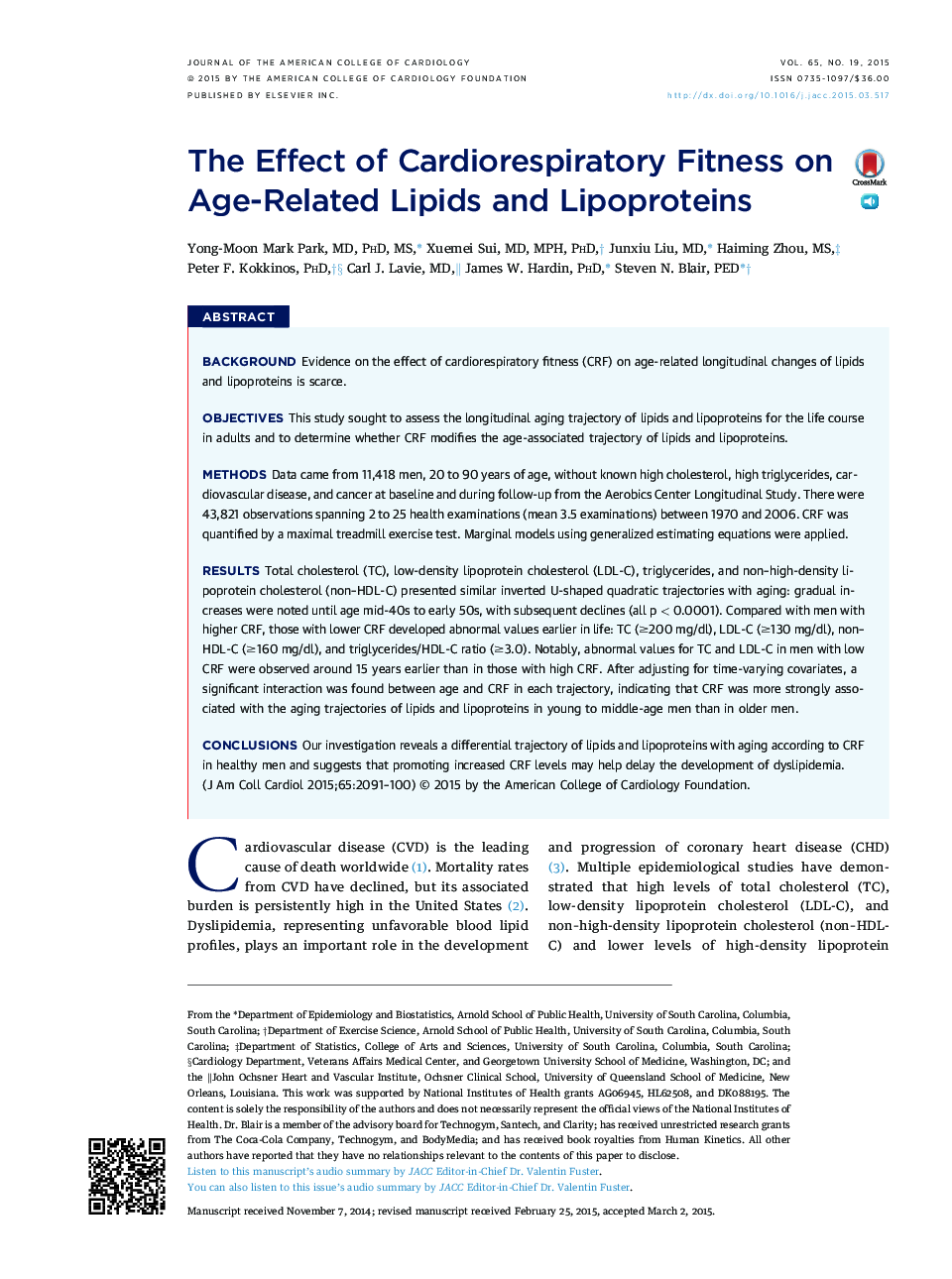| Article ID | Journal | Published Year | Pages | File Type |
|---|---|---|---|---|
| 2944205 | Journal of the American College of Cardiology | 2015 | 10 Pages |
BackgroundEvidence on the effect of cardiorespiratory fitness (CRF) on age-related longitudinal changes of lipids and lipoproteins is scarce.ObjectivesThis study sought to assess the longitudinal aging trajectory of lipids and lipoproteins for the life course in adults and to determine whether CRF modifies the age-associated trajectory of lipids and lipoproteins.MethodsData came from 11,418 men, 20 to 90 years of age, without known high cholesterol, high triglycerides, cardiovascular disease, and cancer at baseline and during follow-up from the Aerobics Center Longitudinal Study. There were 43,821 observations spanning 2 to 25 health examinations (mean 3.5 examinations) between 1970 and 2006. CRF was quantified by a maximal treadmill exercise test. Marginal models using generalized estimating equations were applied.ResultsTotal cholesterol (TC), low-density lipoprotein cholesterol (LDL-C), triglycerides, and non–high-density lipoprotein cholesterol (non–HDL-C) presented similar inverted U-shaped quadratic trajectories with aging: gradual increases were noted until age mid-40s to early 50s, with subsequent declines (all p < 0.0001). Compared with men with higher CRF, those with lower CRF developed abnormal values earlier in life: TC (≥200 mg/dl), LDL-C (≥130 mg/dl), non–HDL-C (≥160 mg/dl), and triglycerides/HDL-C ratio (≥3.0). Notably, abnormal values for TC and LDL-C in men with low CRF were observed around 15 years earlier than in those with high CRF. After adjusting for time-varying covariates, a significant interaction was found between age and CRF in each trajectory, indicating that CRF was more strongly associated with the aging trajectories of lipids and lipoproteins in young to middle-age men than in older men.ConclusionsOur investigation reveals a differential trajectory of lipids and lipoproteins with aging according to CRF in healthy men and suggests that promoting increased CRF levels may help delay the development of dyslipidemia.
